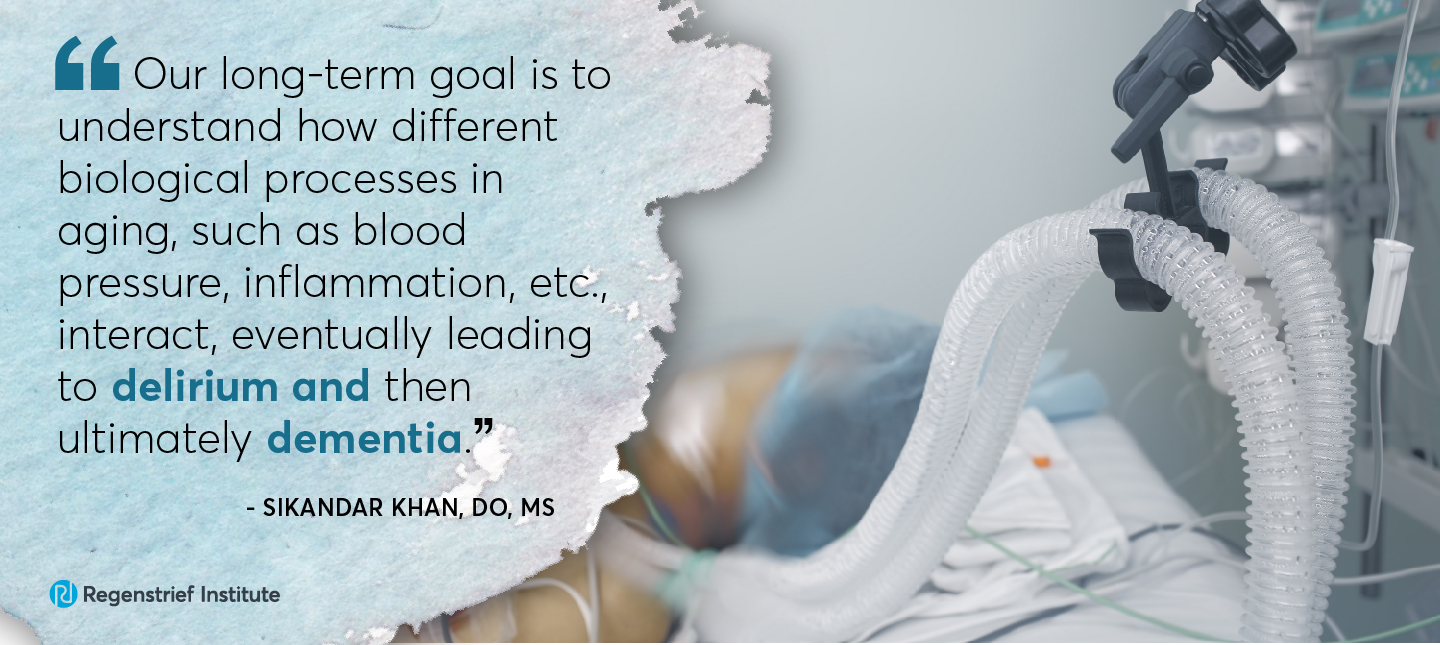Commonly prescribed drug classes control blood pressure but don’t prevent ICU-acquired delirium
A new study conducted by researchers from Regenstrief Institute and the universities of South Carolina and Indiana has found that the most commonly prescribed blood pressure medications, taken for at least six months prior to an intensive care unit (ICU) admission, did not protect against developing delirium in the ICU, regardless of patient age, gender, race, co-morbidities or insurance status.
Delirium, an acute brain failure, affects approximately seven million hospitalized patients in the U.S. annually and is associated with longer hospital and ICU length of stay, higher likelihood of mechanical ventilation, long-term cognitive impairment, new nursing home placement and greater likelihood of death. As delirium severity and duration increase, post-discharge cognitive and functional outcomes worsen.
“We have been looking at potential ways to decrease delirium severity and duration. In this study we looked at ACE inhibitors and angiotensin receptor blockers because these drugs stabilize blood pressure and are thought to have neuroprotective qualities. We wanted to learn whether chronic exposure to these drugs may be important in preventing delirium,” said study senior author Babar Khan, M.D., M.S., a Regenstrief Institute and Indiana University School of Medicine researcher-clinician. “Unfortunately, we did not find lower prevalence of delirium among patients prescribed these medications prior to ICU admission, compared to patients who had not taken them.”
Chronic high blood pressure, which can be successfully lowered by ACE inhibitors and angiotensin receptor blockers, is one of the risk factors for ICU-acquired delirium.
The observational study of the electronic health records of 4,791 racially diverse patients showed that taking these blood pressure medications for at least six months prior to admission to an ICU did not provide enough protective benefit or generate enough brain resilience to prevent delirium.
In other work that looked at a pharmacological approach to delirium, Dr. Khan was a co-author of a study published in the New England Journal of Medicine in 2018 which found that commonly prescribed antipsychotic drugs did not alter duration of delirium.
In the continued quest to identify therapies to prevent or manage delirium, he and fellow Regenstrief Institute and IU School of Medicine faculty member Sikandar Khan, D.O., M.S., are currently collaborating with the Mayo Clinic on a multi-site study to determine if a specially designed music intervention can reduce the likelihood of mechanically ventilated older adult ICU patients developing delirium and can also improve post-ICU brain health.
“This study of blood pressure medications represents our ongoing efforts to understand the role of vascular risk factors in delirium. Our long-term goal is to understand how different biological processes in aging, such as blood pressure, inflammation etc., interact, eventually leading to delirium and then ultimately dementia,” said Dr. Sikandar Khan.
“Relationship between angiotensin-converting enzyme inhibitors and angiotensin receptor blockers prescribing and delirium in the ICU-A secondary analysis” is published in the Journal of the American Geriatrics Society. The study was funded by the National Institutes of Health’s National Institute of Nursing Research and National Institute on Aging.
Authors and affiliations
Malissa A. Mulkey, PhD, APRN, CCNS, CCRN, CNRN1 (corresponding author); Sikandar Khan, D.O., M.S.2,3,4,5; Anthony Perkins, M.S.3,6; Sujuan Gao, PhD3,6; Sophia Wang, M.D.3,7; Noll Campbell PharmD, MS4,5,8; and Babar Khan, M.D., M.S.2,3,4,5
1College of Nursing, University of South Carolina, Columbia, South Carolina, USA
2Division of Pulmonary, Critical Care, Sleep and Occupational Medicine, Indiana University-Purdue University, Indianapolis, Indiana, USA
3School of Medicine, Indiana University, Indianapolis, Indiana, USA
4Center for Aging Research, Indiana University, Indianapolis, Indiana, USA
5Indiana University Center of Aging Research, Regenstrief Institute, Indianapolis, Indiana, USA
6Department of Biostatistics and Health Data Science, Indiana University-Purdue University, Indianapolis, Indiana, USA
7Department of Psychiatry, Department of Biostatistics and Health Data Science, Indianapolis, Indiana, USA
8Department of Pharmacy Practice, Purdue University, Lafayette, Indiana, USA
Babar Khan, M.D., M.S.
In addition to his appointment as a Regenstrief Institute research scientist and as associate director of the Indiana University Center for Aging at Regenstrief Institute, Babar Khan, M.D., M.S., is an IU School of Medicine professor of medicine and the Floyd and Reba Smith Professor of Respiratory Disease.
Sikandar Khan, D.O., M.S.
In addition to his role as a research scientist and co-director of the COVID-19 recovery program for older adults with the Indiana University Center for Aging Research at Regenstrief Institute, Sikandar Khan, D.O., M.S., is an assistant professor of medicine and director of the Indiana University Health Intensive Care Unit (ICU) Survivor Center.
About Regenstrief Institute
Founded in 1969 in Indianapolis, the Regenstrief Institute is a local, national and global leader dedicated to a world where better information empowers people to end disease and realize true health. A key research partner to Indiana University, Regenstrief and its research scientists are responsible for a growing number of major healthcare innovations and studies. Examples range from the development of global health information technology standards that enable the use and interoperability of electronic health records to improving patient-physician communications, to creating models of care that inform practice and improve the lives of patients around the globe.
Sam Regenstrief, a nationally successful entrepreneur from Connersville, Indiana, founded the institute with the goal of making healthcare more efficient and accessible for everyone. His vision continues to guide the institute’s research mission.
About IU School of Medicine
IU School of Medicine is the largest medical school in the U.S. and is annually ranked among the top medical schools in the nation by U.S. News & World Report. The school offers high-quality medical education, access to leading medical research and rich campus life in nine Indiana cities, including rural and urban locations consistently recognized for livability.











